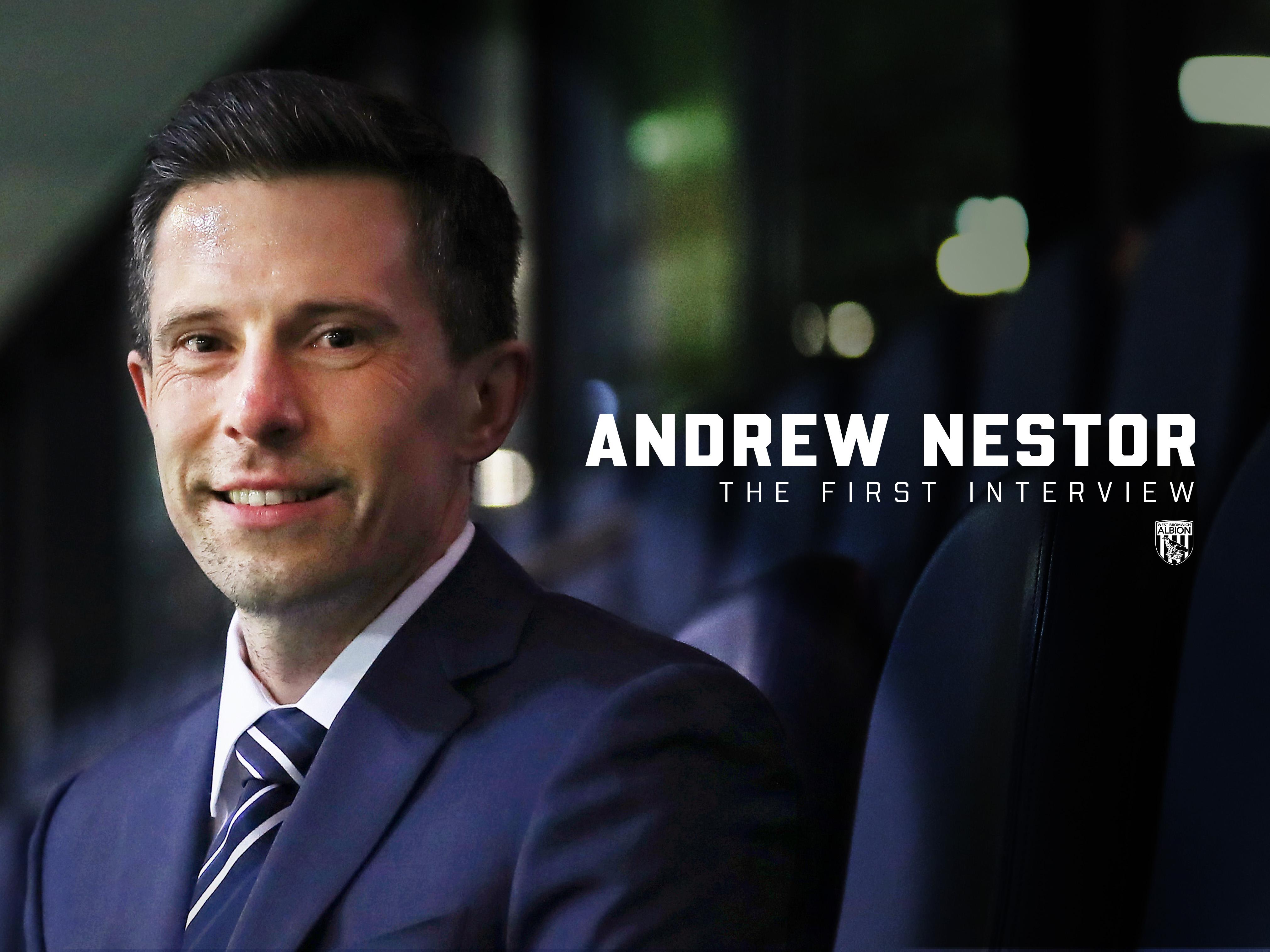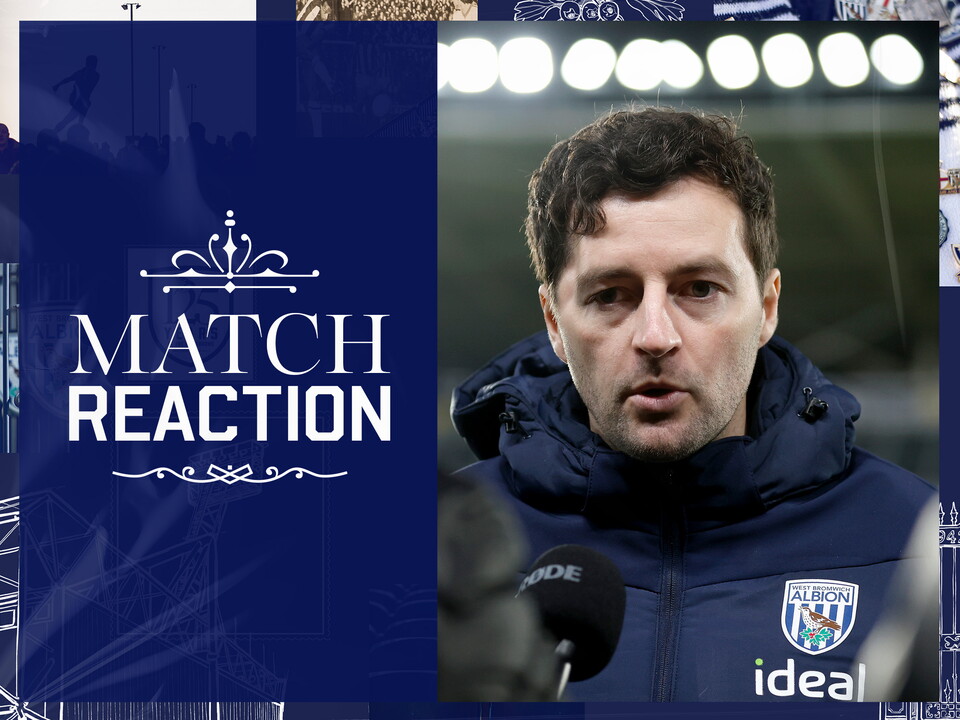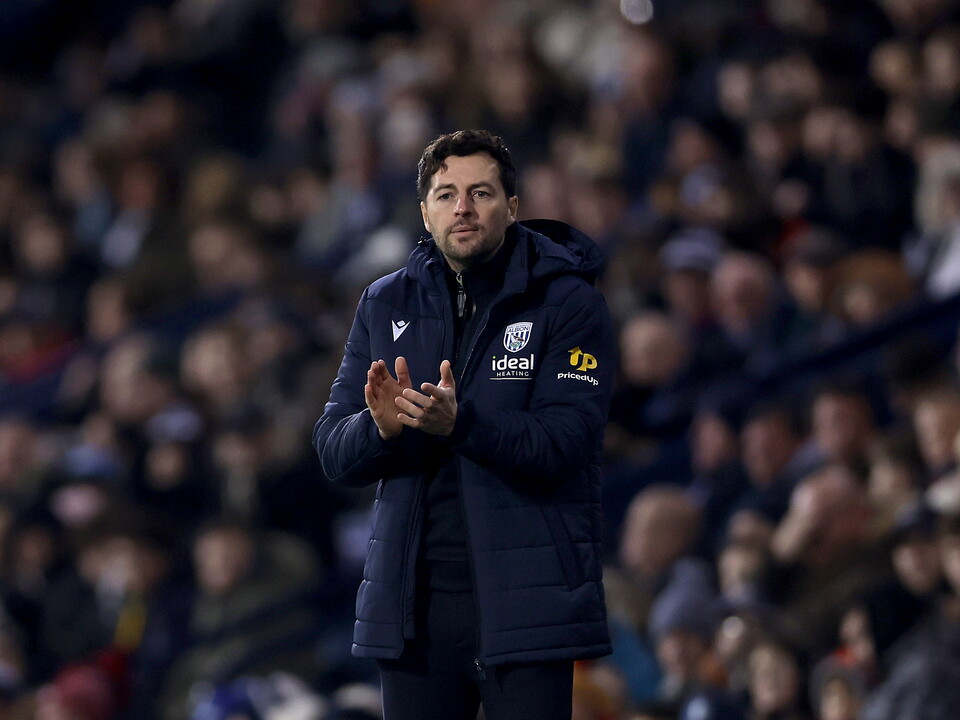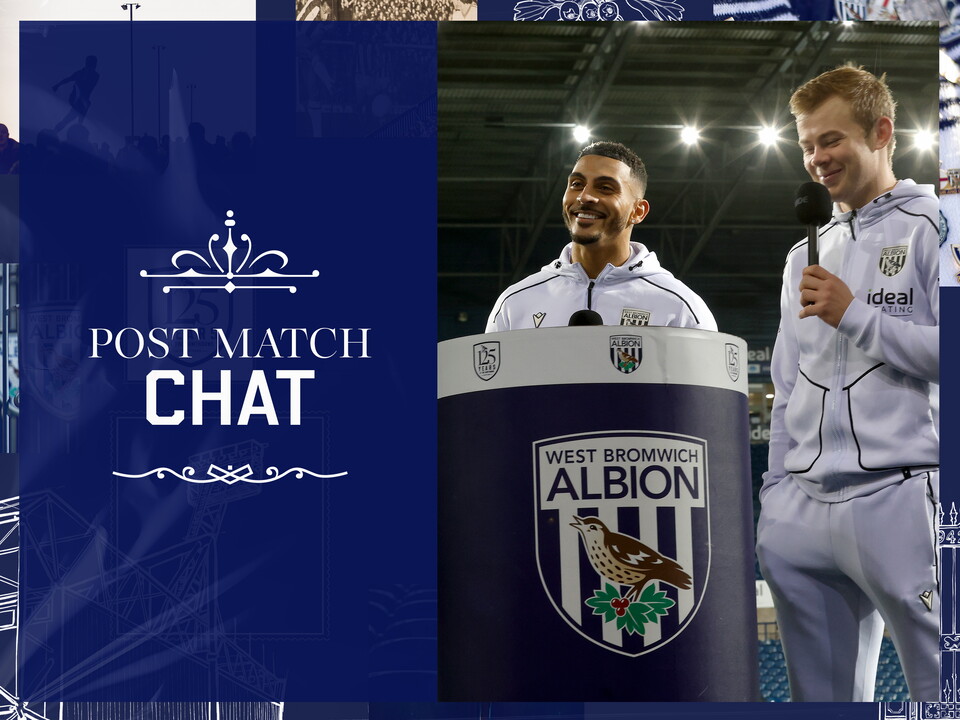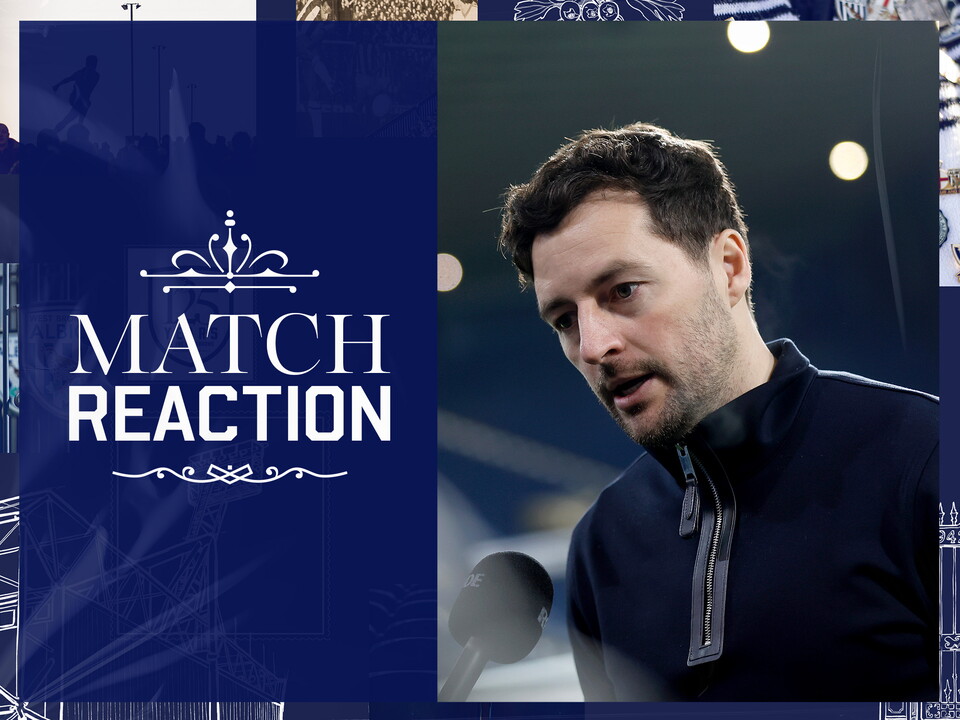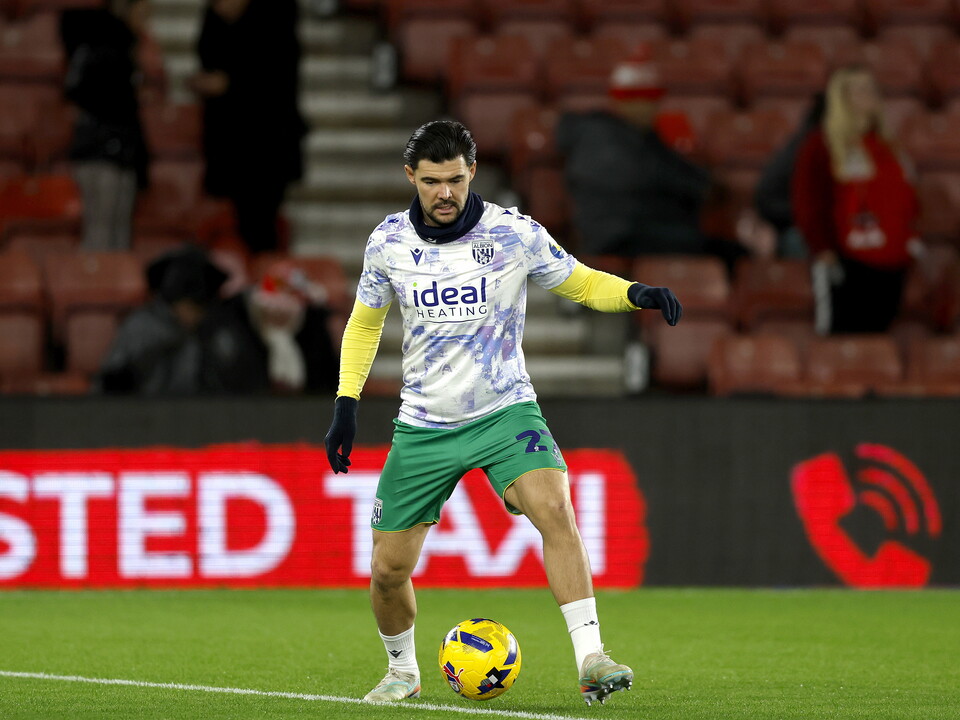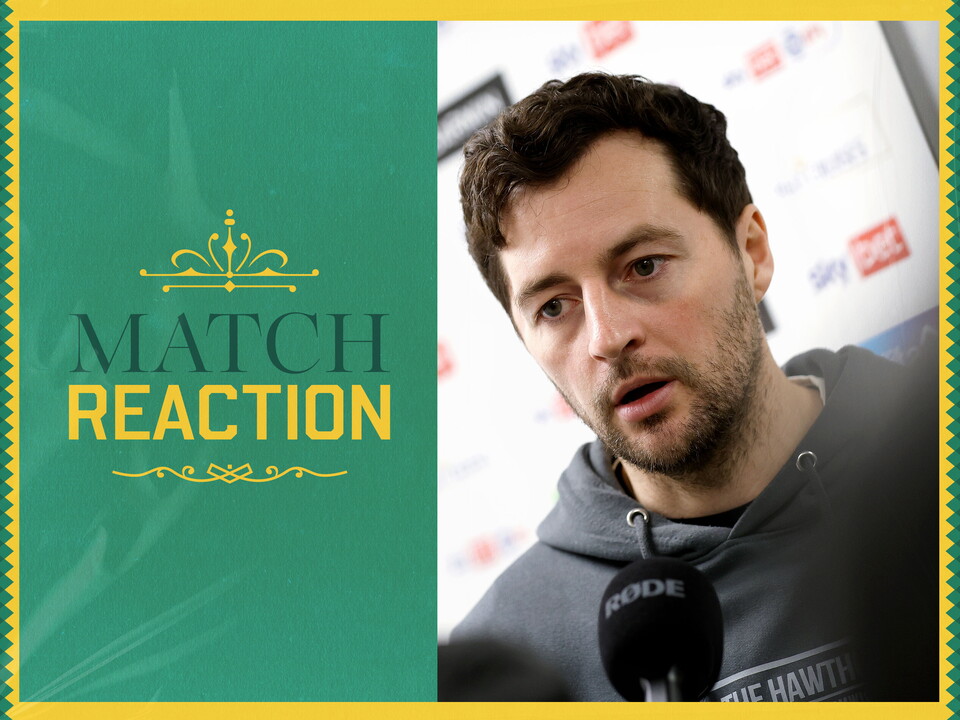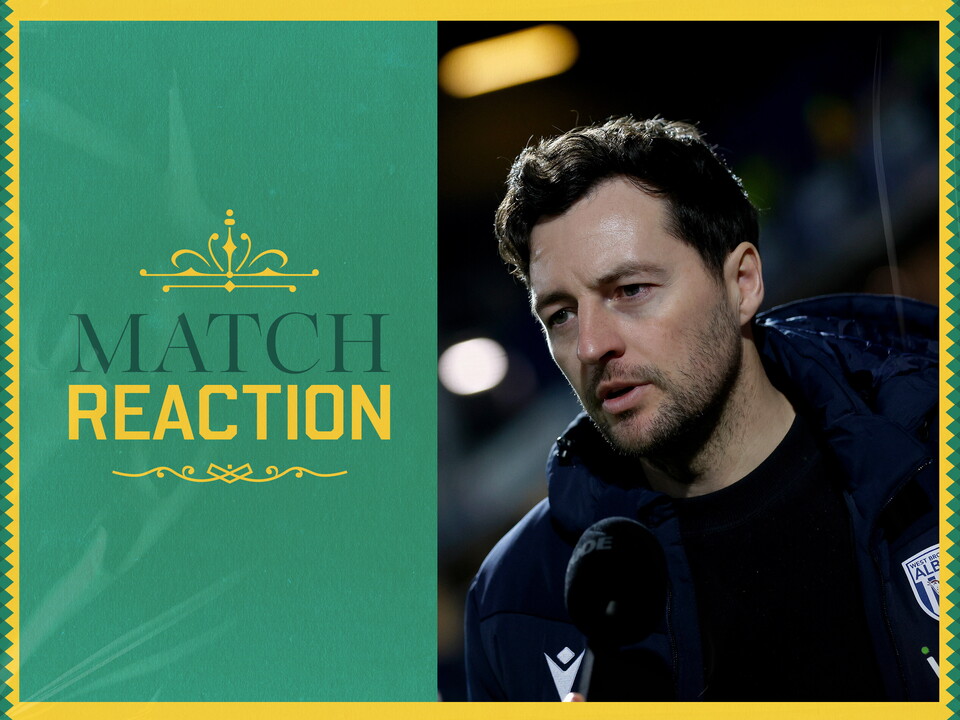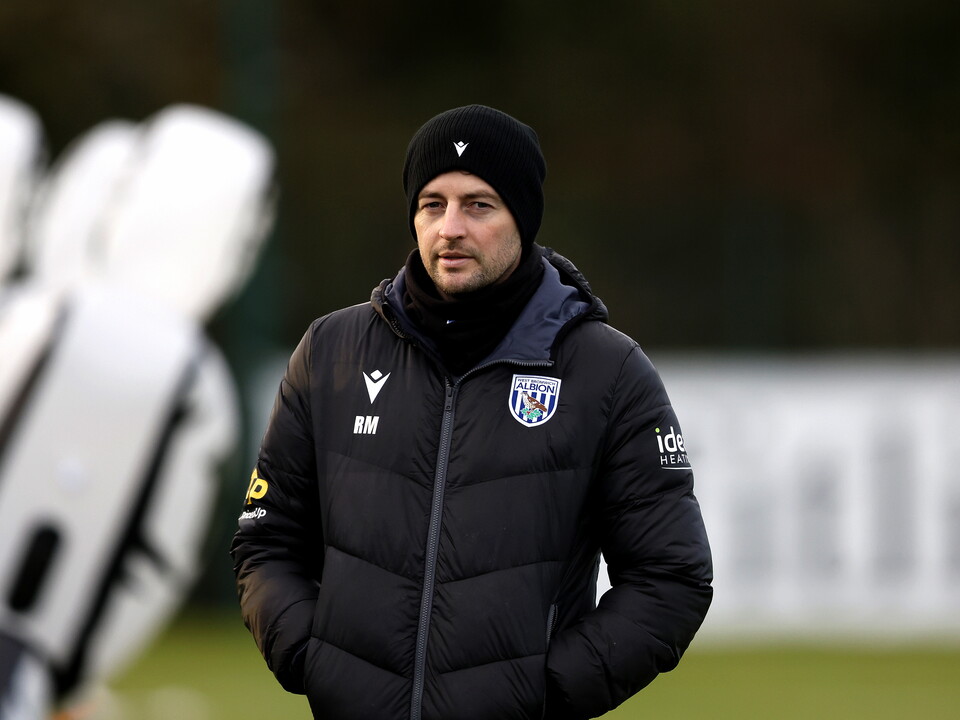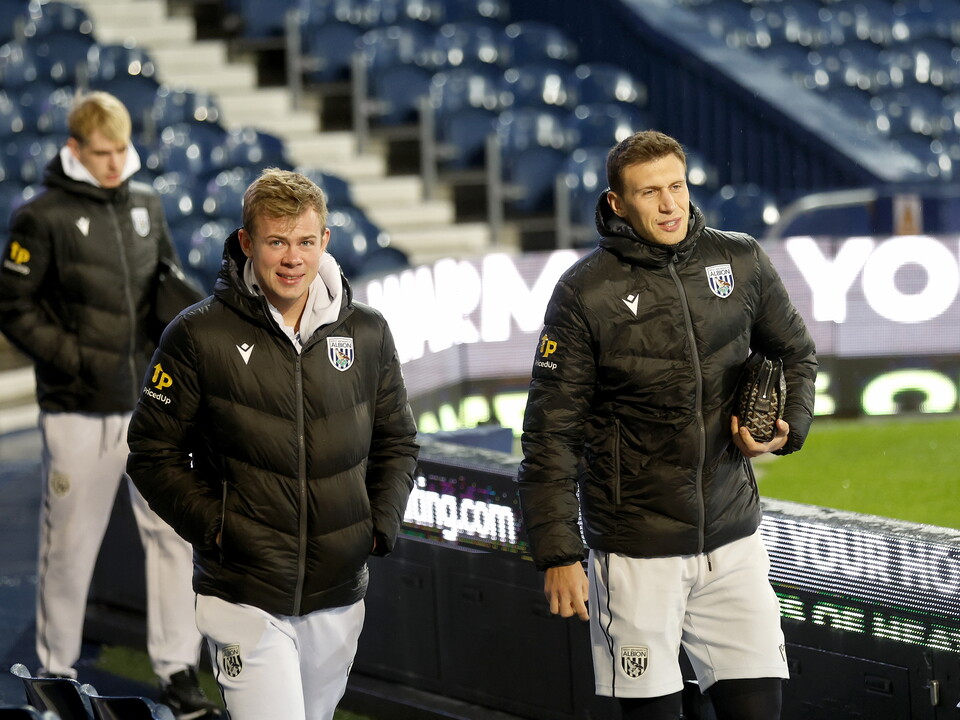Bilkul Football Group CEO Andrew Nestor sat down with WBA TV having recently assumed the responsibilities of the Sporting Director role at the club, offering support across all its football functions.
Nestor discussed a wide range of topics including Albion's business in the summer transfer window, his relationship with Carlos Corberán and other senior members of staff, his plans for the academy and Women's team and feeling part of the Baggies family.
Supporters can read the full transcript, and watch the whole video interview, below.

Andrew, firstly thank you for taking the time to sit down with WBA TV. Please can you talk us through your involvement with Bilkul Football Group and also with West Bromwich Albion?
I was involved with Shilen from the start, as well as Ashish Patel, in forming Bilkul Football, with the idea of investing into a football club where we could really combine our various experience and expertise to be successful. But more importantly, we all have really aligned values as to why we want to be doing this. We all see football clubs as real community assets where you can create and be a catalyst for good in a community.
When we first learned of the opportunity here, and I came to visit the training ground and The Hawthorns for the first time, I was really struck by a sense of community, and the fact that every individual I met who works within the club seemed to feel almost like a family. They really cared about this club.
The condition everything was in was so good that you would never think that the club was under some financial strain or uncertainty. To me, that was something that seemed really special and as I learned more and more about the history of the club, it seemed like a place that we would really want to be part of.
You’ve assumed the role of sporting director. How have you found that, and how have you found dealing with key figures at the club like Mark Miles, Carlos Corberán and Ian Pearce just to name a few?
It’s been a smooth transition. It’s been a pleasure to work with everyone within the club. I’m very lucky to step into a situation where we already have incredible leaders and really good staff. It’s a really well-run ship, and Mark and the team have been doing a fantastic job.
I’ve developed a really good working relationship with Carlos. We started talking back in the winter as the transaction was happening, and I started to learn his personality, the style that he wants the team to take on, and really how he sees a squad being set up.
In this off-season, we’ve spent a lot of time - many hours in his office or if we’re travelling on video calls - going over different iterations of the squad set up, understanding what he’s looking for in each position in terms of player attributes, and really, what we need to build a successful squad off of what we already have. So clearly, he had already started to build what can become a true game model for this club.
Ian Pearce, who oversees football operations, has been terrific to work with. I think most importantly, what he does is he’s able to understand what Carlos wants to achieve on the field and distil that down into what’s needed from a recruiting and scouting perspective. Working with him and the entire recruiting team has enabled us to make the number of moves we’ve made in this window.
When I arrived, they had already built a substantial shadow squad, recruitment list, that they filtered through their various scouting protocols as well as with Carlos. So, we’ve been really well prepared coming into this window to make the changes that we wanted to make.

How impressed have you been with Carlos Corberán?
He’s been really impressive. It’s massive for the club to create a foundation that we can build on, to have a game model and style of play that he’s been building here, where people can look at that and say ‘that’s how the club plays and that’s the type of players that we want and we need’.
We’re now able to take that game model and lay a process on top of it. What my role has been, is to take all of the workings that Carlos has established, that Pearcey and others have established on recruiting, and combine that with an understanding of what are the financial needs of the club, and what is our long-term goal for sustainable success. And we’ll create trading policies that fit that.
Andrew you've obviously got extensive experience in football with clubs such as Tampa Bay Rowdies, Bologna and other major European clubs as well. Tell us how this experience can support your work here and what changes have been implemented at West Bromwich Albion already?
Both Tampa and Bologna, in a way, were a revival of sorts. Tampa was building a club from scratch, but we were bringing back an old brand that felt and was really important to that community. Bologna when we stepped in, they had just been relegated from Serie A to Serie B. There was a lot of turnover at the club when we arrived.
What I take away from those experiences the most is just creating process and structure that can allow consistent improvement. A lot of the people that we put in place at Bologna 10 years ago are still there today, and were part of the Champions League draw which is fantastic for them and a job well done by them.
It took a lot of learning just how to set up process within different types of football operations. I’ve been able to glean a lot of best practices from various clubs and various leagues around the world, and come to appreciate the different cultural nueances of both the sport and a club, and hopefully apply that here.

Sporting data is something we know is pivotal in your work. It's something that was mentioned in the recent statement too. How important has it been to your work here so far and can you give some examples to the fans of how you've applied it?
For us here, one of the first things we did was a deep dive into last season’s squad to really understand where the squad underachieved, what were their strengths, where maybe the squad overachieved and you can’t maybe expect those same results to be replicated. We also learned a lot about what kind of workload and work strain there is on the players, which can better inform the player attributes we’re looking at and also, better inform how they train and how we get the necessary resources around them to be successful.
So, data can be very useful to understand what you have - and also to help us get what we need. This off-season we had a bit of an expanded footprint in terms of recruitment, which I think the fans can see from the players we have been bringing in. It’s been really useful to be able to filter through a larger pool of players, to ultimately find players that really fit our system.
It's been such a busy summer at the football club. Lots of players leaving, lots of players joining. What was the club’s strategy coming into the transfer window, and how successful do you believe that strategy has been?
We knew that this window would be crucial. We wanted to build off of the momentum the club had last year, making it into the play-offs. It was critical to us that we continued to improve the squad.
The amount of turnover that we knew could happen, we saw as more of an opportunity. A chance to continue to build off of Carlos’ playing style, and bring in players that truly fit what he is trying to accomplish on the pitch.
We had a few objectives that we wanted to meet. One was to lower the average age of the squad. We wanted to optimise the squad size. We had a very clear idea of the players we wanted to re-engage for this season, and a very clear idea of which positions we needed key signings for. So the second we left the car park at St Mary’s, we knew what needed to be done and we got to work.
We’ve also been able to sign a lot of our young players and create pathways for them. Either training with the first team or going out on loan, which we feel is really important for the future of the club.

Supporters will be aware of the club's financial position and also the need to have reduced the wage bill this summer. Do you feel this has been achieved and are we likely to be compliant with the EFL rules?
We came into this eyes wide open. Even during the acquisition, we were able to project where the club would be from a PSR perspective. We knew we had a challenge ahead of us.
We have been in constant communication with the EFL to show them our pathway forward and ensure that we didn’t have any restrictions on trading. I feel like we have accomplished what we needed to do. We did have to right-size player wages for a non-parachute club, and that’s just the reality we’re working in right now.
However, because of the work that Carlos, Pearcey and others put in, we were well prepared to make the moves that we wanted to make. Not just bringing players in, but as the supporters know, moving some players out and feeling confident that we had not just necessary replacements, but replacements that can help move us forward.
There has been documented interest in some of our first-team players over the summer. What has the club's stance been on player sales?
I think, with some of the reporting around potential financial restraints of the club, perhaps supporters and even other clubs, thought there might be another opportunity to come in and acquire some of our players and maybe even acquire them below market value. But that was never going to happen.
We want to be a force in this division and always be competing for promotion. We feel that at this club we can do that, and we can do that in a sustainable way that doesn’t get us out of bounds from a financial perspective. We understand the value of our players, both their market value and global football, but also their intangible value to us as a club.

Your responsibility also looks at the academy and the continued growth of it. You've only got to look at our first team and see players like Alex Palmer and Tom Fellows doing ever so well in Carlos Corberán's XI. What is your plan with our academy and how keen are you to see that part of the football club continue to grow and thrive?
The academy is massive for us and it’s a major focus of mine going forward. There’s nothing better than seeing academy products flourishing and doing well in the first team, like we have here. Those players have been rewarded with long-term contracts because we want them to stay here and help us accomplish our goals.
This off-season we signed a large number of young, developing prospects to new contracts. A lot of them are also getting frequent training with the first team. We’re really focused on pathways for these players to ensure that they’re getting meaningful minutes, either here or elsewhere on loan. So it is a major focus of ours, and as we build and invest into our football operations - whether that’s recruiting and data tools or medical and sports science - we want to ensure that our game model and all those investments are filtered down to our academy to keep consistency through the various age groups.
Shilen Patel confirmed in June that the Women’s team had been fully integrated into the football club. That will now fall under your remit too, so what’s your plan for helping them grow and how do you see their progress mapping out?
It’s really exciting. I love to build things and do early stage turnaround projects - and in this case it is quite early stage.
A lot of credit to Shev (Hodgetts-Still), to the Foundation and to a lot of people at the club who have really just, by shear willpower and passion, gotten that programme to where it is today.
Now that it’s part of the group, it will be a main focus of ours. For me, I need to do a deep dive with Shev and the team into what is the right strategy to invest and to grow the women’s programme to where we feel it should be.
Finally Andrew, you’ve been involved with West Bromwich Albion for around six or seven months now. You've experienced matchdays at The Hawthorns and how good our atmosphere and supporters can be. Everyone always talks about Albion being a family. Do you and Bilkul Football Group feel part of the Albion family?
Yeah, it really does have a family feeling. We’re extremely grateful for how welcoming everyone has been. Supporters, club staff, the entire community - it’s really been fun.
It’s been a tonne of work, but we knew that was the case. It’s certainly been worth the work.
